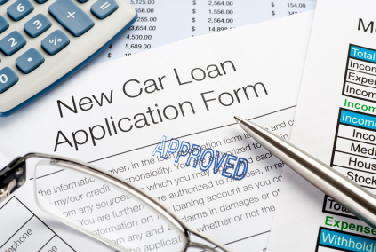Recent Articles
Popular Makes
Body Types
What Is OAC?

When you start shopping for a car at Autobytel.com, you’ll often see some enticing loan rates. Perhaps it will say something like “1.9% for 36 months, 2.9% for 48 months, 3.9% for 60 months, 5.9% for 72 months.”
Often, in small letters next to the skimpy rate will be the phrase “OAC” (or “O.A.C.”). Those mysterious three letters can be the key to your getting a great loan on the car of your dreams. But, what is OAC?
Let’s clear up the mystery right away. O.A.C. is an acronym for the phrase “On Approved Credit.” In a general way, ‘on approved credit’ means that you have a good or outstanding credit history, so you may get a lower interest rate or better terms than average buyers.
In terms of buying a car, what OAC means is that if you meet the requirements the dealer has set forth (like a certain credit score or income level) they will finance your automobile purchase at an agreed upon rate, like those titillating teaser rates. So when a car dealer says "we'll finance anyone OAC," they mean we'll finance anyone who meets certain credit qualifications.
The obvious next question: what are the credit qualifications to get an OAC loan?
To determine an individual’s credit worthiness for an OAC or other loan, sellers of big-ticket items like cars turn to credit bureaus, which are agencies that maintain the credit records of millions of people. The three largest major credit reporting agencies are Equifax, TransUnion and Experian.
The credit bureaus keep track of your credit history, the record of how an individual has borrowed and repaid his or her debts. This history is typically represented by a credit scoring system, a statistical system used to rate credit applicants based on factors related to creditworthiness. Some of those factors include past delinquencies and late payments, whether you’ve constantly maxed out your credit card (a no-no), if you’re constantly asking for credit (like a number of credit card applications in a short time), and more.
The credit score number is often called a FICO score, which stands for Fair Isaac Corp., the California company that developed the system. Scores range from the 300s to about 900, with most people scoring in the 600s and 700s. The higher the score, the better (and the better your chance of scoring one of those ‘On Approved Credit’ loans).
It’s good to check your credit every year. Most consumers are entitled to one free credit report per year. But try to avoid having your credit repeatedly checked; each time it’s checked can deduct points from your credit score.
The application process is usually fairly straightforward. When you go to the dealership, you provide them with your SSN (social security number), which gives the finance officer the right to run (check) your credit. Often the dealership will run your credit with different agencies to obtain the best score. Late or missed payments, repossessions and bankruptcies will all serve to damage your score. The better your credit, the higher your score, which may entitle you to those enticing “O.A.C” rates. The lower your score, the higher the credit risk, so if you’re offered a loan, the interest rate will probably be higher.
You’ll also be asked where you bank and for job references. These personal, prying questions are the auto dealer’s attempt to determine your creditworthiness, based on your past and future ability to repay debts. It’s all designed to answer one question: will you be able to pay your car loan back every month?
Establishing credit in your own name is one of the key signposts to adulthood in our society. Unless you think all of your future purchases will be made in cash, gold or wheat, establishing credit will be critical, whether your goal is getting a credit card, buying items like appliances or furniture or getting a loan for big ticket items like a home or car (preferably at favorable ‘OAC’ rates).
One way many people start building their credit history is by getting a department store credit card and/or a gas card, then using the card while making sure to pay it off promptly. Parents will often co-sign for their adult children to get credit cards, which can then be transferred into their own names. College students are often offered credit cards as well. If you do get one of these ‘starter’ credit cards, make sure to pay it off promptly. A credit card is not free money!
While you may not receive the favorable ‘OAC’ rates, you may very well still be able to get credit to buy a car. Many dealers have access to multiple finance sources.
Past credit problems can certainly pose difficulties. Unfortunately, there’s no ‘quick fix’; the Federal Trade Commission states that most ‘credit repair’ offers are likely signs of a scam.
You can improve your credit report legitimately, but it takes time, effort, and sticking to a personal debt repayment plan. Get a copy of your credit report. If there are errors, send the company a certified letter (so they can’t claim they didn’t get it) documenting the problems. Time will eventually also help; a consumer reporting company can report most negative information for seven years and bankruptcy information for 10 years.
Keep in mind also that creditors set their own standards, and not all look at your credit history the same way. Some may look only at recent years to evaluate you for credit, and they may well give you credit if your bill-paying history has improved.
Whatever kind of loan you get, from a credit card to a car loan, make sure to pay it promptly each month. The longer your positive credit history, the better your chance of getting a great ‘OAC’ rate for your new car.